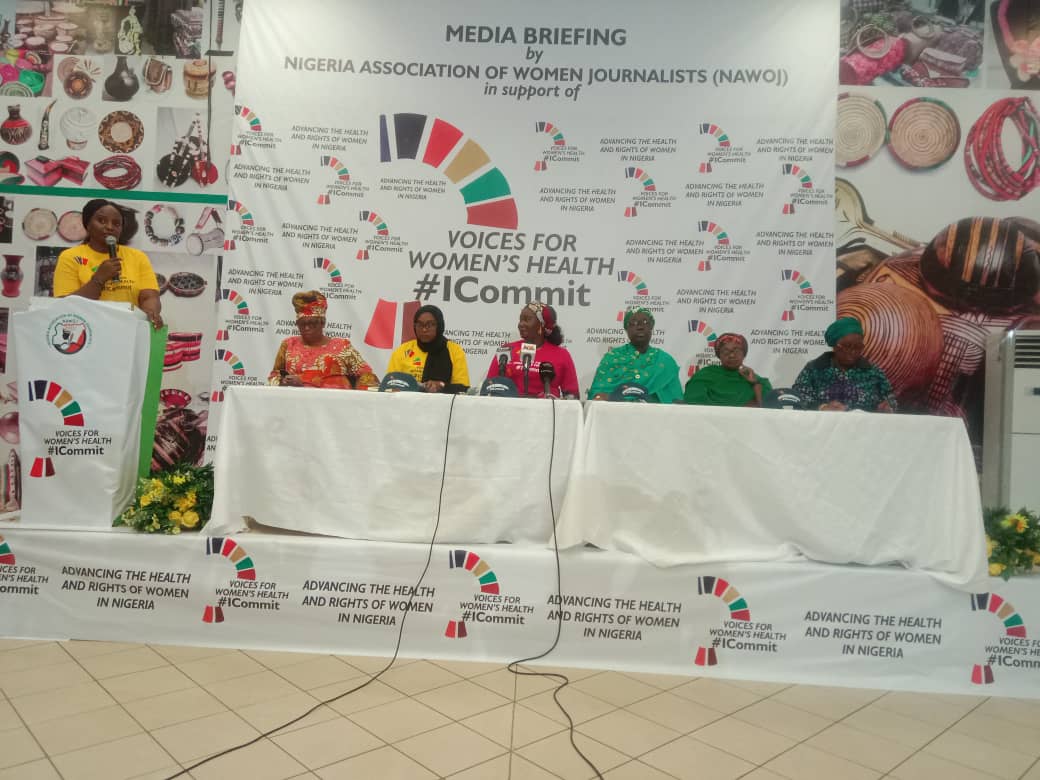Maureen Okpe
Women’s group under the auspices of the Nigeria Association of Women Journalists, (NAWOJ) and Women Voices in Health, has called on policy makers and relevant stakeholders to ensure the improvement of healthcare delivery for women.
The group made the call at a press briefing on Wednesday in Abuja, organised on the need to advance efforts for strengthening women’s healthcare services in Nigeria.
President of NAWOJ Ladi Bala, urged the media to begin to set the agenda to give priority to issues of women health as the country is gearing up for transitioning into a new administration, come May 29,2023.
Bala said, “when we talk about women issues we are talking about developmental issues and these are issues we need to emphasis to get to the authorities early enough. We do not need to wait for government to be form before we begin to create the awareness, we can start setting the agenda now.
“What we are doing today is part of our responsibility, our commitment, to raise the concerns about the health of the children, the state of our health facilities. Deplorable health facilities lack medicine, medicine and other equipment women bear the most burden in the society and their health is mostly at risk,” she said.
The NAWOJ president charged journalists to create content that are information based content that will ensure positive response from the authorities.
“Let it not be our routine way of reporting. But let’s raise some questions. Let’s begin to ask and make demands on behalf of the Nigerian people, that critical steps, and critical policies that need to be put in place are implemented,” she said.
In the same vein, Country Director of Pathfinder International, Dr. Amina Dorayi, disclosed challenges women encounter in accessing health care services, noting every ten minutes many die due to complications.
Dr. Dorayi stated, “women’s Health is actually in a state of emergency because every 10 minutes, many women die in our health facilities, in our communities, because they either do not have access to skilled care at birth, or they are not able to pay for the skilled care at birth.
“In Nigeria, we have over 46 million women of reproductive age, but Nigeria accounts for more than 25% of global maternal deaths. It means that one in four that is a quarter of all maternal deaths in the old world come from Nigeria, so we contribute to this huge burden of maternal deaths.”
“The social determinants of maternal health are strongly connected with the patriarchal nature of our society.We still have early marriage, in addition to teenage pregnancies, low level of education, poor health and nutritional status, inadequate access to sexual and reproductive health and skilled attendance at birth.”
On her part, Co-Founder of International Society of Media and Public Health and profound Journalist, Moji Makanjuola, said “if women are aware, you can only pay 15,000 naira a year to be able to access quality healthcare.
“Women can also come together with the wives of the FCT traditional rulers and make themselves a small cluster to make demand on their needs, as if you don’t make demands, they will not take care of us.”
“There must be a deliberate task to include Nigerian women in elective offices. if we look back at the statistics of women that have been affected, our young girls that have been affected by insurgency in the North East and anywhere else the woman bares the face of the war, security in the health security is needed.

